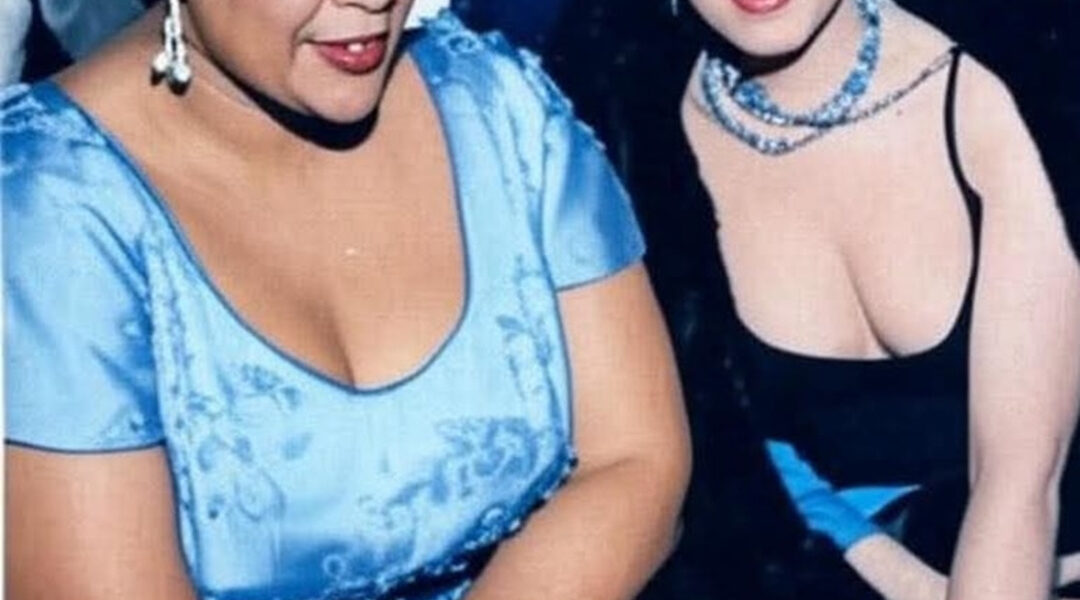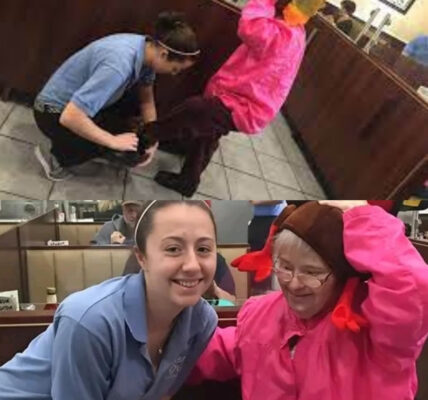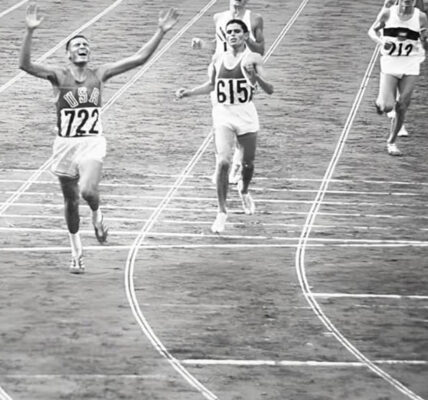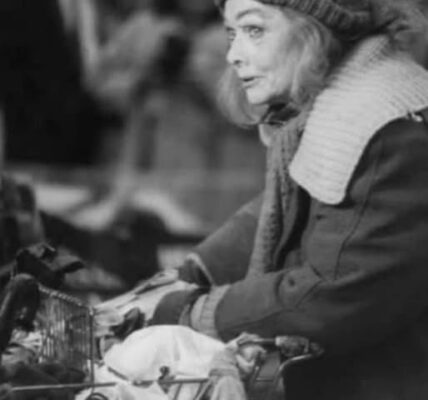
In the heart of 1950s Los Angeles, a city dazzling with the allure of Hollywood lights and the rhythm of jazz clubs, Ella Fitzgerald was a rising star whose talent was unquestionable, yet whose opportunities were cruelly limited. Despite her extraordinary voice, despite the awards and acclaim she had begun to earn, one of the most iconic nightclubs in the city—the Mocambo—refused to let her perform. Not because she lacked skill, but because she was Black. In a world that often measured worth by skin color, Ella’s brilliance was being forced to wait in the shadows.
Ella, ever graceful, never let bitterness define her. She sang in smaller venues, pouring every ounce of emotion into every note, but the dream of performing at the Mocambo—a stage where legends were made—remained out of reach.
It was then that a friend stepped in, a friend whose own fame was absolute and whose heart was uncommonly generous: Marilyn Monroe. Marilyn, a Hollywood icon whose image graced screens and magazines across the world, had seen the injustice firsthand. She knew Ella deserved that stage. And with a quiet audacity, she picked up the phone and called the Mocambo’s owner. She made a promise that carried both charm and determination: she would be there, every single night, at the front table, if Ella was allowed to perform.
The owner, recognizing both Marilyn’s star power and the inevitable media attention, agreed. Perhaps he expected a spectacle of Hollywood glamour, but he could not have imagined the magic that was about to unfold.
On the first night, as Ella walked onto the Mocambo stage, the atmosphere was electric. Marilyn sat in her usual spot at the front table, her presence commanding attention, but it was Ella who stole the room. The cameras clicked, the press scribbled, and the audience leaned in. And then Ella sang.
Her voice filled the air, rich, clear, and profoundly moving. Every note resonated with stories of struggle, hope, and resilience. The audience, initially curious about the glamorous actress in the front row, quickly forgot everything but the sound of Ella’s extraordinary talent. The doubters were silenced; the skeptics captivated. That night, history was quietly being rewritten in a smoky, intimate club.
For Ella, the Mocambo was more than just another gig. It was a breakthrough, a crack in the wall of racial injustice that had long barred her from stages she had earned the right to command. After that performance, invitations to perform at clubs that had once ignored her poured in. She would never again play in a small jazz club simply because of her skin. The Mocambo night marked the beginning of a new chapter in her career, one in which her voice could finally soar unimpeded.

Marilyn’s act of friendship went beyond simple support; it was a stand against prejudice. She used her fame, her influence, and her courage to open a door that was rightfully Ella’s. And Ella, with a voice that could move mountains, stepped through it, leaving the world forever changed.
Years later, Ella would speak of that night with deep gratitude: “I owe Marilyn Monroe a real debt… After that, I never had to play a small jazz club again.” Those words, simple yet profound, capture the essence of what happened that night: two women, each remarkable in her own right, joined forces to create a moment of justice, courage, and beauty.
It was not merely a performance; it was a statement. A lesson in the power of friendship, the strength of compassion, and the capacity of one person to use her privilege for good. Marilyn’s spotlight did not overshadow Ella’s; it illuminated her, allowing the world to hear a voice that had long deserved to be heard. And in that illumination, history took note, prejudice faltered, and music found its way into hearts that might otherwise have remained closed.
One act of courage. One voice that refused to be silenced. One friendship that altered the course of music and society. That night, the stage at the Mocambo became more than a platform—it became a testament to the power of empathy, influence, and the enduring magic that occurs when greatness supports greatness.
And so the story lives on: a reminder that true stars shine not just in their own light, but in the light they help others to reach. Ella’s voice, amplified by Marilyn’s courage, continues to echo, inspiring generations to stand for what is right, to support those whose voices deserve to be heard, and to believe that even in the darkest moments, light—and friendship—can prevail.




